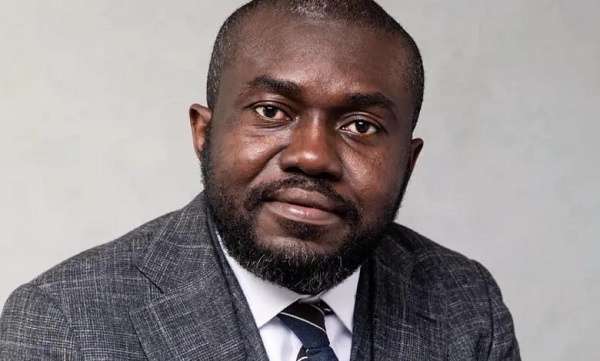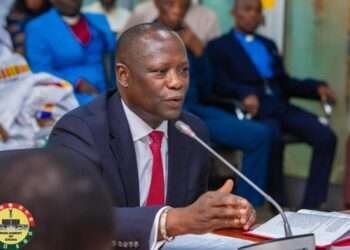Lawyer and political activist Oliver Mawuse Barker-Vormawor has drawn attention to the alarming state of Ghana’s appeal system, warning that its inefficiencies are deepening public distrust in the country’s justice institutions.
His remarks come in response to recent research by Dr. Justice Tankebe, which paints a sobering picture of declining confidence in both the police and the courts over the past two decades.
The research reveals that public confidence in Ghana’s justice institutions has declined sharply over the past two decades. In 2005, only about one in three citizens expressed little or no trust in the police and courts.
Today, that figure has risen dramatically, with seven out of ten distrusting the police and six out of ten expressing the same view about the courts. The findings highlight a staggering erosion of trust, underscoring the urgent need for thoughtful, evidence-driven reforms to restore credibility.
Barker-Vormawor acknowledged these findings but chose to focus on one critical element of the problem: Ghana’s broken appeal system.
“Apart from Nigeria, Ghana has more court of appeal judges than every country in West Africa and a little beyond.
“But our appellate judges are also the least busy judges in our court structure… Because the administrative system is broken, it can take even 2 years to get an appeal heard on the simplest of things.”
Oliver Mawuse Barker-Vormawor
The activist painted a vivid picture of just how frustrating and disheartening the justice system can be for ordinary citizens seeking redress.

He explained that if a judge delivers an unfair or erroneous ruling against an individual, the wait to even have the records for an appeal compiled can stretch endlessly, dragging on for years.
According to him, the process is so delayed and inefficient that “your 4-year-old child will be standing for SRC president” by the time the appeal is finally ready to begin.
This, he stressed, leaves many people feeling powerless and robbed of the very essence of justice, as the drawn-out process effectively denies them timely remedies that the courts are supposed to provide.
Urgent Reform Needed For Justice
For Barker-Vormawor, this inefficiency reveals a justice system that is inherently and completely broken.
He emphasized the urgent need for reforms, pointing out that an appeal system incapable of delivering timely correction of judicial errors severely undermines the promise of fairness.

“When ordinary people know that it will take years before their appeal is even listed, what they really hear is that justice is not for them. This is not about resources alone. It is about design, incentives, and accountability.”
Oliver Mawuse Barker-Vormawor
He questioned why Ghana, despite having more appellate judges than most neighboring countries, still manages to leave these judges with some of the least active caseloads in the region.
This troubling situation, he stressed, raises serious concerns about efficiency and accountability.
He also questioned why the process of preparing records of appeal remains manual and inefficient, with no enforceable timelines and no sanctions for registrars who delay the process.
These administrative gaps, he argued, perpetuate a cycle of inefficiency and injustice.
Justice System Collapse Looms Without Reforms
Oliver Barker-Vormawor further outlined a set of urgent reforms needed to restore credibility to the system.
He called for the digitization of court records, strict statutory timelines for compiling and transmitting appeal documents, transparent case management systems, and stronger judicial accountability.
According to him, these measures would not only streamline the appeal system but also restore some degree of public confidence in the courts.

He warned that if the appellate process remains broken, the very foundation of fairness within Ghana’s judiciary will continue to erode. The promise of justice, he stressed, is meaningless if appeals take years to resolve.
“Until we fix this, the statistics that Dr. Tankebe shared will only get worse. Because justice that takes 5 years to arrive is not justice at all. It is abandonment.”
Oliver Mawuse Barker-Vormawor
Barker-Vormawor’s critique underscores a growing consensus that Ghana’s justice system is failing its citizens.
While debates often center on corruption or resourcing challenges, his focus on the appeal system highlights the structural inefficiencies that make justice inaccessible to ordinary people.
Without decisive reform, the courts risk further alienating the very citizens they are meant to serve.
READ ALSO: Oil Prices Dip as Trump-Zelensky Talks End




















